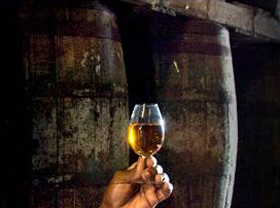Turbulent times for rum: EU preferences

By Edwin Laurent
[This is part two of a series on the Caribbean rum industry]
The previous article in this series examined the extensive tax breaks, and other forms of support for distilleries in Puerto Rico and the US Virgin Islands, that Caribbean rum producers claim have been unfairly disadvantaging them.
But subsidisation of competitors is not the region’s only worry.
This article will look at another, even more serious threat looming in the Caribbean’s largest market on the other side of the Atlantic, where it is in danger of losing out to Latin American rums.
Preference erosion
For generations, Caribbean rum enjoyed tariff preferences in the UK, more latterly in Europe, under the Lomé/Cotonou agreements and now the EPA.
The industry believes that preferences are still essential for continued viability, since they help it compete with low-cost suppliers and those that receive substantial financial assistance from their governments.
It is true that Caribbean brands have been enjoying successes on the quality front, but price competitiveness is still the major determining factor for the bulk of rum sales on the international market.
The EU is now negotiating free trade deals with Central and most South American countries that can have various possible outcomes.
But what seems inevitable is that any final agreement will include relaxing quotas, and reducing or ending duties, on all or some imports of rum from Latin America, which is home to most of the world’s largest and lowest-cost exporters of rum, such as Brazil, for instance.
As a result, the preferences that give marketing benefits to the Caribbean will be devalued and eroded once their main competitors also receive them.
Preference erosion is, however, not new.
Europe had already been reducing the duties on rum and certain other spirits imported from the US. Then, in 2003, it eliminated them entirely, under a 1997 trade agreement popularly referred to as “Zero for Zero”.
Why this opening to the Latins?
Europe has long been keen to sell more to, and strengthen commercial engagement with, the rapidly growing markets of Latin America, so is now negotiating trade deals that will help its own exports make their way south.
The Central and South Americans, though, will not be accommodating unless they receive, in return, easier entry for the range of manufactured and agricultural products, bananas, rum etc that they sell.
To secure what is in its interests, the EU will make deals with the Latin Americans, even if that hurts its other trading partners.
That is the way the trading system operates: with little room for sentiment.
The cost to the Caribbean
Once Europe reduces its duties and eases the quotas on Latin American rum imports, their retail prices can fall, making them more competitive.
This will, as intended, help sales expand including by winning customers away from other suppliers, especially the Caribbean’s.
A recent econometric study undertaken by the London-based Overseas Development Institute estimated that the drop in Caribbean rum exports due to easier entry of Latin rum into Europe could be as much as 16.5%.
Some commentators in the industry fear that the impact is actually unpredictable and the loss might be even higher, since there would be little to prevent suppliers of Latin rums from freely grabbing market share.
This was actually what happened in the case of bananas.
On that occasion, Caricom suppliers’ loss of their share of the market, following WTO-mandated liberalisation, was greater than that calculated by the EU.
The challenge from the trade deals with the Latins compounds an existing problem, stemming from the earlier removal of tariffs on rum applied by the US and the EU under the Zero for Zero Agreement referred to above.
Here, Caribbean rum would be expected to face stiffer competition, not only in the EU but also the US, since they both export rum to each other.
To remain competitive with other suppliers whose costs have dropped, Caribbean prices must also decline. But how can this be achieved?
Seeking solutions
Many years ago, the EU, to its credit, appreciated the serious damage that could have been done to the Caribbean by Zero for Zero.
So it contributed an initial €70m to a joint programme with the West Indies Rum and Spirits Producers' Association (WIRSPA), to help the industry meet the hefty cost of modernising and adapting to the more competitive conditions.
Governments can also provide direct or indirect financial and other support that reduces overall costs faced by distillers and suppliers.
This could be through tax rebates, grants and loans etc, which permit their rum to be sold at lower prices than would otherwise have been the case: exactly what Puerto Rico and the USVI are doing to help their distilleries.
Leaving aside the question of whether or not this would be the right thing to do, most Caribbean governments are in any event not in a sufficiently comfortable budgetary position to be able to afford to subsidise the rum industry.
Inaction, though, is not an option for the Caribbean. The all-important jobs, income and foreign earnings that the industry generates are entirely dependent on the continued viability and prosperity of the rum export trade.
The next article will explore the feasibility of actions and policies that could be pursued to shield Caribbean rum from the adverse effects of those measures and regulations in the US and Europe that are making it more difficult to remain competitive.
Edwin Laurent has served as an Eastern Caribbean Ambassador to Europe and worked in London for the Commonwealth. He has recently been awarded the Cross of the Order of St Lucia for contributions to economic development.
